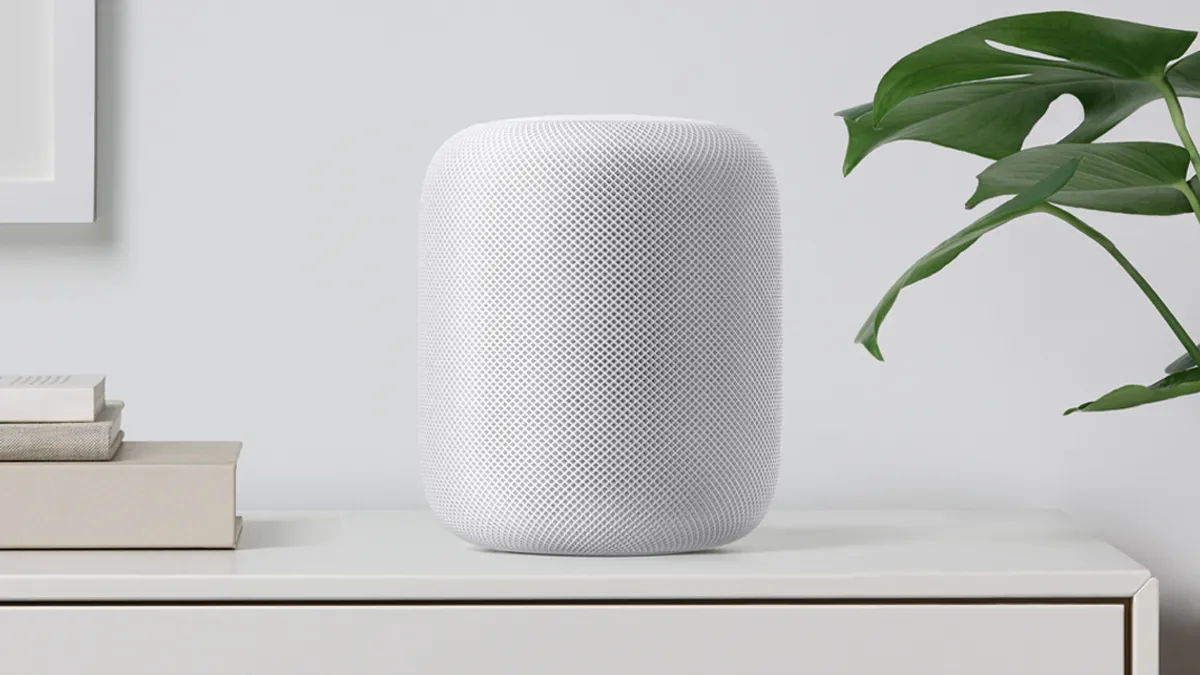Brief:
-
Apple delayed plans to start selling its HomePod smart speaker to early next year, per a statement. The company introduced the device in June at its annual WWDC developer conference, and had said it would be available for $349 by the end of 2017, Venturebeat reported.
-
The HomePod will be powered by Siri, Apple’s voice-activated digital assistant that has been on iPhones since 2011. The smart speaker is Apple’s answer to Amazon’s Echo and Google’s Home devices, which let people play music, set reminders and control smart home devices. Apple emphasized the HomePod's sound quality, but Amazon and Google also announced product upgrades to improve music playback.
-
The delay is the second one in the past two years for a major new Apple audio-related product, Bloomberg News reported. Last year, its AirPods wireless headphones were held back from an October launch until December.
Insight:
Missing the holiday season with a new product is a setback for Apple as it tries to play catch-up in the smart speaker market with leaders Amazon and Google, which can use this opportunity to strengthen their dominance in voice-activated digital assistants.
While the smart speaker market is comparably small, it is expected to grow rapidly over the next five years, giving Apple a chance to participate in the burgeoning electronics category. The number of Americans who use a voice-activated assistant device like Amazon Echo or Google Home at least once a month will more than double this year to 35.6 million, eMarketer said. The market leader was forecast to be Amazon with 71% of users while Google will have 24%. Both Amazon and Google have signed on a number of marketers for integrations and ads, suggesting smart speakers could be an important monetization strategy going forward.
But Apple faces challenges with declining usage for Siri on smartphones. Siri lost 15% of its monthly U.S. users — 7.3 million people — in the year-long period ending in May, according to data from app measurement company Verto Analytics. Phone-based assistants are slowly falling in popularity, except when used for navigation and map apps, the company found.














